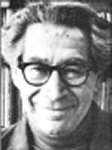A Quote by Ralph Waldo Emerson
It seems to be a rule of wisdom never to rely on memory alone.
Related Quotes
The Four Reliances. First, rely on the spirit and meaning of the teachings, not on the words; Second, rely on the teachings, not on the personality of the teacher; Third, rely on real wisdom, not superficial interpretation; And fourth, rely on the essence of your pure Wisdom Mind, not on judgmental perceptions.
To possess both wisdom and compassion is the heart of our human revolution. If you have wisdom alone and lack compassion, it will be a cold, perverse wisdom. If you have compassion alone and lack wisdom, you cannot give happiness to others. You are even likely to lead them in the wrong direction, and you won't be able to achieve your own happiness.
The invention of writing will produce forgetfulness in the minds of those who learn to use it, because they will not practice their memory. Their trust in writing, produced by external characters which are no part of themselves, will discourage the use of their own memory within them. You have invented an elixir not of memory, but of reminding; and you offer your pupils the appearance of wisdom, not true wisdom.
The Second Rule is that the greatest harm can result from the best intentions. It sounds a paradox, but kindness and good intentions can be an insidious path to destruction. Sometimes doing what seems right is wrong, and can cause harm. The only counter to it is knowledge, wisdom, forethought, and understanding the First Rule. Even then, that is not always enough.
Memory is a tenuous thing. . . . flickering glimpses, blue and white, like ancient, decomposing 16mm film. Happiness escapes me there, where faces are vague and yesterday seems to come tied up in ribbons of pain. Happiness? I look for it intead in today, where memory is something I can still touch, still rely on. I find it in the smiles of new friends, the hope blossoming inside. My happiest memories have no place in the past; they are those I have yet to create.
We all have within us a deep wisdom, but sometimes we don't know we have it. We live in a culture that doesn't acknowledge or validate human intuition and doesn't encourage us to rely on our intuitive wisdom. Much of the Western world emphasizes rationality and reason, but overlooks or ignores the enormous value of intuition and instinctive wisdom.








































